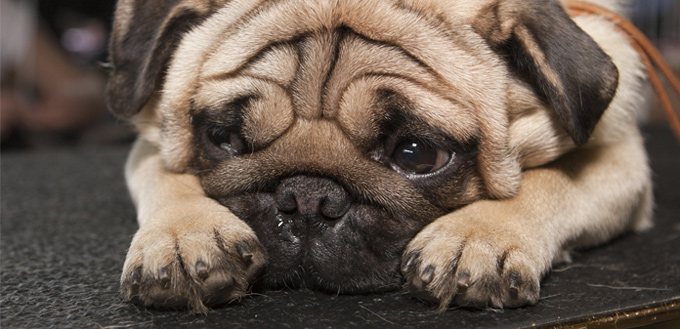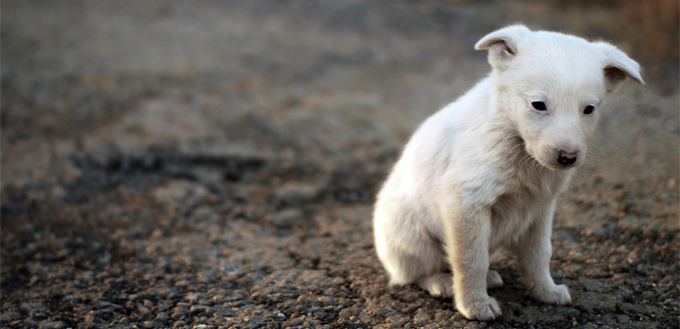Puppies are adorable bundles of joy to have in any pet-loving family. They are like babies and young kids who are still learning everything about their immediate surroundings. They play, explore, and have a great time with their littermates as well as their human family. As such they will need only the best and highly nutritious food to support both their growth and development and their physical activities. Unfortunately, there will always be instances when your young pup simply refuses to eat. For newbie pet parents this can be worrisome. A puppy not eating typically signals something off. So, what is it and what can you do about it?

Why Is My Puppy Not Eating?
There are many reasons why puppies refuse to eat. If it skips a meal or two, for some pet parents, it’s perfectly alright. But if your young hound has not eaten for a couple of days, then that should raise an alarm.
Most pet parents base their judgment on the ability of their dogs to consume the recommended dog food serving by their dog food manufacturer. For instance, if the label says they need to give half a cup of dog food every meal for their 6-month old puppy, yet it is only able to finish perhaps three-quarters of the serving, most pet parents already label this as a decrease in the puppy’s appetite and can be interpreted as not eating well.
You May Also Like: Dog Food Brands
Unfortunately, this is not always the case. Experts observe that perfectly healthy hounds usually eat only about 60 to 70 percent of the feeding recommendations of their brand of dog food. As such, to really ascertain whether your puppy has decreased appetite or is clearly experiencing anorexia – total absence of food intake – it is critical to look at its feeding habits. If your pup is still eating part of its meal, then it is still perfectly okay granted that it is not less than half of what you’re serving. If your young dog has not been eating for several days, a condition called anorexia, then a veterinary evaluation is a must.
Here are some of the main causes why your puppy is having anorexia.
- Illness
One of the most common reasons why your young pet doesn’t want to eat is that it is sick. Diseases have an uncanny way of changing the appetite of an organism. It is important to evaluate whether there are other signs or symptoms that accompany the decrease in appetite or anorexia. This is a critical hallmark of an illness-related anorexia. Other clinical manifestations aside from not eating are present to help support the existence of a disease. This is why veterinary consultation is important to help identify the exact disease that is causing a change in your pet’s appetite.
Examples of diseases that can produce a decrease or loss of appetite include systemic infections, kidney failure, liver problems, and even cancer. Pain and inflammatory conditions can also make your puppy not want to eat.
- Recent vaccination
If your puppy just had its shots, you can expect it to show loss of appetite, albeit temporarily. This will typically last a few days so it is important to determine if the loss of appetite occurred about a day or two after the vaccination. Count a few more days and your young dog’s appetite should return to normal. This should not be made a reason not to have your puppy vaccinated as studies show puppy shots are important in the prevention of contagious and serious diseases in dogs. Aside from loss of appetite you may also notice other side effects of vaccinations such as lethargy and slight fever.
- Oral or dental problems
Puppies that are going through the period of teething will usually have decreased if not loss of appetite. This is secondary to pain and inflammation that may result from the erupting teeth. It is also possible that puppies that have loose tooth, broken tooth, or even gingivitis can also make them not want to eat. Your veterinarian can help you determine if such is the case for your pup.
You May Also Like: Dog Dental Spray
- Travel or being in an unfamiliar situation
If you just brought your new puppy from the shelter or from the kennel, there is a great chance that it will not eat regardless of the type or quality of puppy food that you give it. This can be attributed to being in unfamiliar surroundings. Some older puppies also exhibit the same behavior when traveling or when brought to a different environment. Some are also known to have motion sickness which can also affect their appetite.
- Behavioral and/or psychological issues
Some puppies are known to be very picky eaters. Puppies that are depressed or are under extreme stress will also not want to eat. Some pups don’t like to eat because they are not really comfortable where they are eating. Some don’t like the food that is being offered to them. It is therefore crucial to identify the presence of an organic disease or any other reason before attempting to diagnose that your puppy has a behavioral or psychological problem that is affecting its desire to eat.
You may also like our Dog Food for Picky Dogs and Dog Weight Gain Supplements.
What Can I Do to Help My Puppy Eat Again?
There are many things you can do to help your puppy regain its appetite. However, these should always be initiated with the collaboration of your vet. It is imperative that any organic disease be clearly identified first so that the root cause of the problem is properly addressed. Typically, your vet may prescribe a therapeutic diet for your pet. Unfortunately, since these are hardly palatable you will have to discuss with your vet alternative ways without coercing your young dog to eat the prescription diet. In some cases, appetite stimulants can be administered or a nutrient-rich liquid diet can be given via syringe feeding.
Related Post: Best Organic Dog Food
If your puppy’s loss of appetite is mostly behavioral, here are some of the things that you can do to help your puppy eat again.
- Give the Right High-quality Puppy Food
Regardless of the cause of your puppy’s loss of appetite, it is crucial to give it the right type of high-quality pet food. Don’t give dog food that is designed for other life stages. Give a breed-specific puppy formulation for your young dog as this has the right nutrients that are required by its breed and life stage.
Related Post: Iams Dog Food Review
- Consider Giving Wet Puppy Food
Especially for puppies that may have dental problems or are down with an illness, wet or canned puppy food is always a great choice since it is softer and comes with more flavor. The increased palatability and aroma of the wet puppy food can help entice your young pet to eat.
Related Post: Cesar Dog Food
- Moisten or Warm up Your Pup’s Kibbles
If you don’t like getting wet food for your puppy, you can try warming its kibbles for about 10 seconds in the microwave. This can help release and heighten the aroma of the puppy kibbles so your young pet will be motivated to start eating again. Alternatively, you can moisten the kibbles with plain water or even plain chicken broth to enhance the flavor of its food.
- Try Puppy-friendly Chew Toys
If the reason your puppy is not eating is because of a teething concern, then you should consider getting it a puppy-friendly dental chew toy. There are also dog chews that come with more flavors which are more enticing to chew on compared to conventional kibbles. Just make sure to get something that is formulated specifically for puppies.
- Consider Home-cooked Dog Food
If you try feeding your pup a small slice of unseasoned lean beef or chicken and it will gobble it up immediately, then you’re most likely looking at a very picky eater. In such cases you might want to consider giving home-cooked dog food.
- Add Peanut Butter
Peanut butter has a very strong aroma and is something that all dogs, from puppies to seniors, love. You can add a teaspoon or so of peanut butter to their puppy food just to enhance the flavors and aromas of its meal. Alternatively, you can also put peanut butter in treat dispensing chew toys.
Related Post: Dog Safe Peanut Butter
- Take Your Puppy for a Walk Just Before its Meal
The natural reaction of the body is to seek food once its energy reserves have been depleted. That’s the whole idea about taking your pup for a walk just before you give its meal.

- Try Adding Yogurt or Cottage Cheese to Your Puppy’s Food
Just like peanut butter, puppies and dogs love yogurt and cottage cheese, too. If you can get Greek yogurt or plain unsweetened or unflavored yogurt, then you can add a small amount to your puppy’s food. The same is true with plain cottage cheese. These should help entice your puppy to eat.
Puppies require high-quality food to support their optimum development. That is why it is understandable for pet parents to become worried if their young dogs simply refuse to eat. With the added knowledge on what causes puppies to lose interest in food and the things that you can do to help restore their appetite you can be sure your young dog will be regaining its appetite real soon.
For some help and guidance on what to buy, make sure you read our review of the best puppy food.
Related Post: Best Chew Toys for Puppies
Sources:
- Ellen Malmanger, DVM, Why Is My Dog Not Eating?, PetMD
- Dog Not Eating? Possible Causes and Appetite Solutions, WebMD
- Feeding Your Pet, Animal Humane Society






